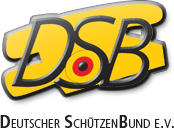Effect of shooting experience on executive function: differences between experts and novices
(Auswirkung von Erfahrung im Schießsport auf die exekutive Funktion: Unterschiede zwischen Experten und Anfängern)
Background: Executive function (EF) plays an important role in controlling human actions. Shooting is a closed motor skill, characterized by high anti-interference ability and high mental intensity. However, the beneficial effects of closed exercises such as shooting on EF remain unclear.
Methods: We utilized an expert-novice paradigm and the Flanker task to examine the EF of shooting athletes. Participants were assigned into the novice group, expert group, or control group, based on the level of training and competition experience. Reaction time (RT) and accuracy of performance across the three groups were compared.
Results: For the simple task, the control group showed a longer RT than the novice group, for all three inter-stimulus interval (ISI) conditions. Significant differences between the control and the expert groups were observed only at 300-ms and 400-ms ISIs. For the complex task, the control group exhibited a higher RT than the novice and expert groups at the 300- and 400-ms ISIs.
Conclusions: The self-control during performing closed motor skills in the environment determines that shooters have proficient anti-interference ability. This ability is uncorrelated with task type, but most likely is affected by reserved task response time.
© Copyright 2020 PeerJ. Alle Rechte vorbehalten.
| Schlagworte: | Schießen Leistung Sportler Hochleistungssport Anfängertraining Bewegung Theorie Bewegungskoordination Reaktionsschnelligkeit Bewegungsgenauigkeit |
|---|---|
| Notationen: | technische Sportarten |
| Tagging: | exekutive Funktion |
| DOI: | 10.7717/peerj.9802 |
| Veröffentlicht in: | PeerJ |
| Veröffentlicht: |
2020
|
| Heft: | 8 |
| Seiten: | e9802 |
| Dokumentenarten: | Artikel |
| Sprache: | Englisch |
| Level: | hoch |
